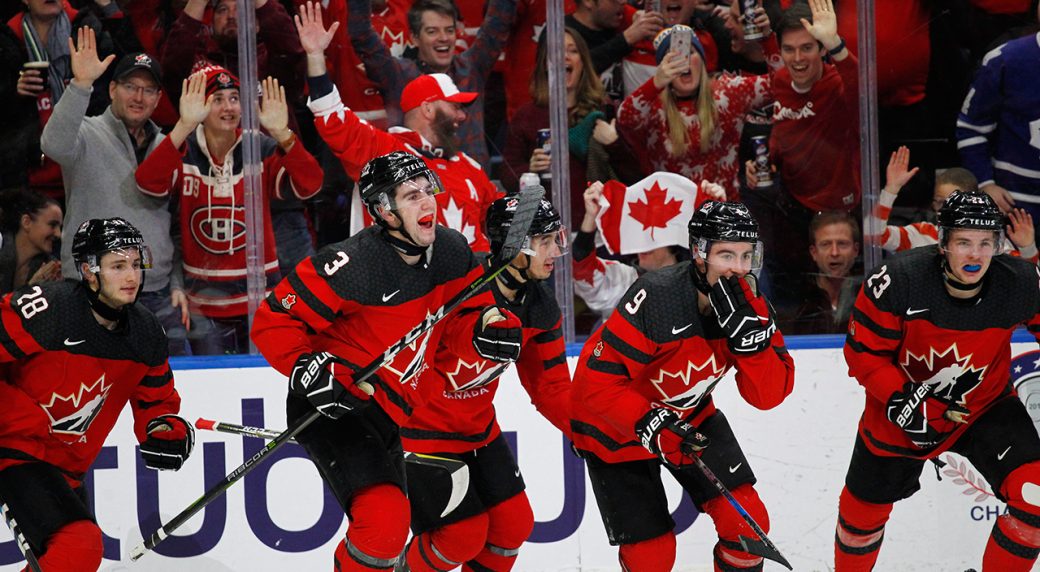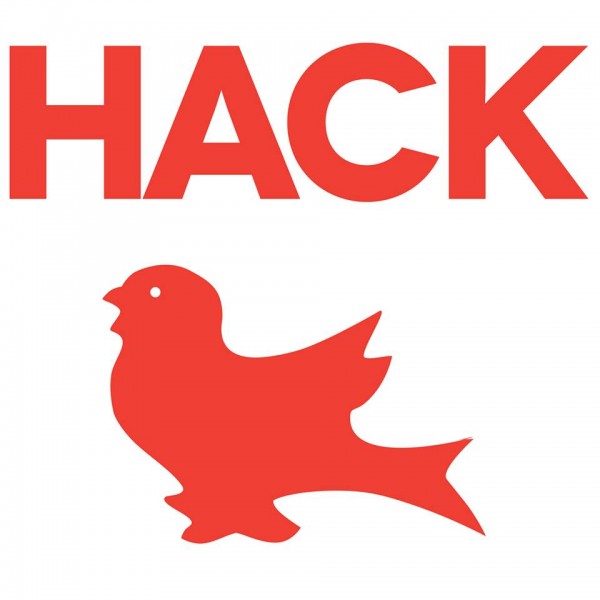Winner: Anaheim Ducks
The Ducks would be winners if they only had one of Trevor Zegras or Jamie Drysdale, but actually, they have both. Drysdale was a rock for Team Canada, finishing second on the team in minutes played and total shifts, and tied for third in plus/minus. Both Zegras and Drysdale have started 2021 with the San Diego Gulls, Anaheim’s American Hockey League (AHL) affiliate. Zegras has lit up the AHL with two goals and three assists in two games and looks like a strong candidate for early promotion.
Drysdale has had a slower start. Although he has accounted for a goal and an assist in his first two games in the AHL, he has a pedestrian plus/minus of one. Regardless of their current output, however, Zegras and Drysdale have already proven themselves on one of hockey’s biggest stages, and the best is still yet to come.
Loser: Pittsburgh Penguins
Unlike some of our other losers, the Penguins find themselves here because of what they haven’t done. For sixteen years, the Penguins have been able to rely on the great Sidney Crosby, and his 1A Evgenii Malkin to keep them in Stanley Cup contention. The core of Crosby and Malkin (and Marc-Andre Fleury) was good enough to win a pair of championships, but now, Crosby is 33, Malkin is 34, Fleury is gone, and the Penguins are off to a mediocre 7-5 start through twelve games. If the Penguins want to stay competitive into the 2020s, some retooling is in order.
So what kind of prospects did the Penguins send to the World Juniors? A pair of Nordic goalkeepers, the Finnish Joel Blomqvist and the Swedish Calle Clang. Blomqvist is currently plying his trade in the Finnish Liiga while Clang is playing in Sweden. The lack of skating prospects is concerning, but more than any other single player, a good goalkeeper can be the difference between winning and losing. No one else spends as much time on the ice, night in, night out, as your starting keeper. So how did Blomqvist and Clang do at the juniors? They combined for exactly zero minutes on the ice. Sorry Pittsburgh, you’re a loser to me.
Winner: Germany’s Second Line
The best two lines at the World Juniors were unsurprising: Team USA’s first line of Zegras, Turcotte, and Kaliyev was the best with 34 points; next was Team Canada’s first line of Cozens, Jakob Pelletier, and Connor McMichael with 31 points. In third place, with 29 points was Germany’s second line of Tim Stutzle, Florian Elias, and John Peterka. We will be talking about Mr. Stutzle again, but this line was a team effort. Stutzle had five goals and five assists, Peterka had four goals and six assists, and Elias had four goals and five assists. Even more impressive is that these three combined for fourteen of Germany’s fifteen goals.
Although Germany had a mediocre tournament overall—they finished sixth out of ten teams—their biggest problem was a leaky defence. They gave up 28 goals, second only to Austria, who finished last. Although Stutzle and Peterka will age out before the next juniors, Elias will still be around. For a team that’s historically a punching bag, a line like this is a bright spot, and potentially a building block at the senior level.
Loser: Edmonton and Hometown Heroes
They really could have had it all. Edmonton hosted a highly successful tournament, with high quality of play and no positive tests. Team Canada played well (mostly) and for weeks, Rogers Place was at the centre of the hockey world. But, to borrow a phrase, hockey is a game of inches, and Edmonton just missed out on the biggest prizes. Team Canada lost in the finals, and worse, the good people of Edmonton were stripped of the chance to root for an actual hometown hero. And not just any hero, but team captain Kirby Dach.
Kirby Dach, the highly-rated Chicago hockey team prospect, native of St. Albert, Alberta, broke his wrist in a tune-up game against Russia. The injury ended up requiring surgery, leaving Dach out for four to five months. Dach is a very highly-rated prospect (just ask the Chicago front office who drafted him third overall) and the people of Edmonton were robbed of watching him play big minutes in his hometown.
Winner: Ottawa Senators
Finally, back to Tim Stutzle. Yes, the Senators were also represented by American defencemen Jake Sanderson, and yes, Sanderson did play big minutes (second on Team USA in total minutes) and he played them well (+7 for the tournament), but this is the Tim Stutzle show. Stutzle captained the German team, led the team in goals, made the tournament All-Star team, and won the Best Forward Award. So basically, Ottawa had a lot to be excited about while watching the World Juniors.
They have even more to be excited about now. Sure, the Senators cannot stop losing, really cannot stop shipping goals, and are the undisputed worst team in Canada. But all that means is that they need to look to the future! Stutzle has four goals and three assists in fourteen games, including a filthy, filthy game against Le Habs on February 4th. A couple more games like that and Ottawa might even finish the year ahead of Detroit!
Loser: European Hockey
You would be forgiven for thinking this a broad category of losers, and for thinking that it is misplaced between the Tim Stutzle and Topi Niemela hype trains. But facts are facts: USA and Canada gave up twelve goals against European squads and scored 75 freaking goals against the same European squads.
Although the North American titans cleaned up against the minnows (Canada 16 Germany 2, Canada 10 Switzerland 0, USA 11 Austria 0), what was most disappointing was the team-wide performances from Finland and Russia. Usually considered the best two hockey nations in Europe (sorry not sorry, Sweden) both had some big losses to the US and Canada. The US and Canada each hung four goals on Finland, which accounts for over half the goals the Finns gave up. In a rematch of the Summit Series, Canada beat Russia five to nothing in the semifinals. Not only did European teams lose in Edmonton, they’re losers here too.
Winner: Topi Niemela
Sorry Mr. Stutzle, sorry Zegras, sorry Dylan Cozens and everyone else who had a great tournament; the Bull & Bear IIHF 2021 World Juniors MVP is Topi Niemela. Niemela finished with eight points, first among defencemen, and finished second in assists behind only Trevor Zegras. Niemela was rightly recognized for his stellar play, winning the Best Defencemen Award. Niemela currently plays in the Liiga and has yet to sign his first NHL contract. Get excited though; Niemela was drafted in the third round by the Toronto Maple Leafs, and given the Leafs lack of star power in the back, he could be a cheap, quality addition.
Niemela likes to get involved offensively, and he’s good at balancing his playstyle with positional responsibilities. He finished second on Team Finland in points while also playing the third-most minutes in the World Junior’s fourth-best defence. Niemela also proved his penalty killing chops. No team spent more time shorthanded than Finland, and only Russia had a higher percentage of penalties killed. Although Niemela did spend some time in the box, more often than not he was out on the ice doing the dirty work. It is this perfect combination of preventing and creating goals that makes Topi a big winner.
Loser: Team Canada
Canada’s senior team has lots to look forward to. Centre Dylan Cozens finished first in goals and second in points. Goalie Devin Levi tied the tournament record with three shutouts, finished with a .964 save percentage, and won the Directorate Award for the best goalkeeper. Both Cozens and Levi made the All-Star team along with teammate Byram Bowen. The defenceman Bowen also led the team with minutes played.
For any other team, the 2021 World Junior Championship would be a victory, if a bittersweet one. Team Canada finished the tournament having scored the most, gave up the least, and just generally looked dominant while doing it. But in this country, at this tournament, against the Americans? Nothing but gold will suffice. If only by their own standards, Team Canada is a loser.
Winner: Team USA
Although they started off with a 3-5 loss to rivals Russia, Team USA can safely look back on the World Juniors as a victory. They finished with a gold medal, beat Canada in the finals, and team phenom Trevor Zegras won MVP. Zegras, also known as “Zee,” finished first at the Tournament in Assists and Points and picked up a goal and an assist in the final match win over Canada. Team USA can also feel excited about Zegras’ linemates. Zegras, Alex Turcotte, and Arthur Kaliyev were Team USA’s first line for every game and combined for 34 points, the most of any line in the bubble.
The American’s offensive prowess also paid off in special teams: they lead the field in power play goals and percentage. In almost every stat, the US finished at or near the top of the field. We’ve already mentioned offensive stats, but the US also allowed the second-fewest goals and has the second-highest save percentage. Starting goalkeeper Spencer Knight was solid after a few hiccups in the opening loss to Russia, but finished strong with 34 saves in the shutout gold medal match victory over Canada.








